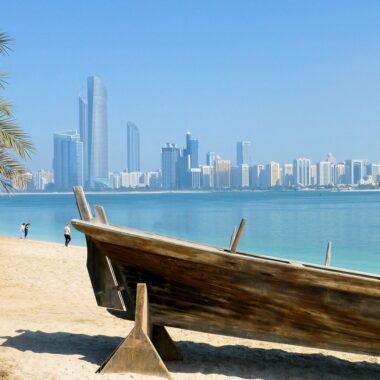Have you ever dreamed of exploring far-off lands, only to be stopped by the nagging thought that “travel is too expensive,” “it’s too dangerous,” or “I’m not the right age/type”? You’re not alone. Many people still cling to these widespread travel misconceptions, believing that only the rich or the young can truly see the world.
But here’s a secret: those notions are simply not true. Despite a wealth of information proving that travel can be affordable and accessible, these **common travel myths** persist. They fuel cynicism and hold countless aspiring adventurers back.
Today, we’re diving deep to debunk 7 of the most common travel myths that prevent people from embarking on the journeys of their dreams. Get ready to shift your mindset and discover how accessible the world truly is!
Myth #1: Travel is Expensive
Yes, travel costs money – everything does! But the idea that global exploration is exclusively about luxurious resorts, fancy tours, and high-end experiences is outdated. For decades, subtle marketing has equated “fun vacation” with “expensive vacation,” embedding this notion into our collective consciousness. Even seasoned travelers once believed it!
The truth is, you don’t need a massive inheritance or a six-figure salary to have incredible trips. What you *do* need is creativity, careful planning, and a commitment to saving. Budget travel is not just a dream; it’s a reality for millions.
It might take a bit longer to save, and you might need to make some sacrifices, but if you genuinely want to travel – whether for a few weeks or a few years – there’s always a way to make it happen. You can travel on a minimum wage if you set your mind to it!
Myth #2: Travel Credit Cards Will Ruin Your Credit
This is one of the most persistent common travel myths among those looking for free travel. Many people fear that applying for travel credit cards will devastate their credit score. However, strategic use of travel credit cards for points and miles can unlock incredible free flights and hotel stays, transforming your travel budget.
The “art” lies in using your regular spending – groceries, gas, dining out – to accumulate points. While applying for a new card might cause a small, temporary dip in your credit score, it typically recovers within two months, provided you pay your bills on time. Unless you’re planning a major purchase like a house soon, this minor dip is negligible. In fact, having more available credit, when managed responsibly, can actually *improve* your credit score over time. A good credit score is meant to be used!
Many experienced travelers have multiple cards and excellent credit scores. The key is to always pay off your balance each month to avoid interest.
Myth #3: Couchsurfing is Unsafe
Couchsurfing is a fantastic sharing economy app designed for cultural exchange, where locals offer travelers a free place to stay – often just a couch! This is a budget traveler’s dream, but it often gets unfairly labeled as unsafe. It’s one of those **common travel myths** that can easily be dispelled with a little understanding.
While staying in a stranger’s home isn’t for everyone, it’s generally a safe and incredibly enriching way to travel. Similar to platforms like Airbnb, Couchsurfing profiles feature reviews and references, allowing you to thoroughly vet potential hosts. You can read about their past guest experiences, check their verified status, and choose someone you feel comfortable with.
Not ready to crash at someone’s place? You can still use the app to meet locals for coffee, meals, or museum visits, enjoying the cultural exchange without the overnight stay.
With common sense, careful review reading, and trusting your instincts, Couchsurfing offers a safe, fun, and affordable travel experience. Many hosts are families, solo women who only host other women, or expats looking to connect. Don’t let fear-mongering media stories dictate your opportunities; the vast majority of people are kind and eager to share their culture.
Myth #4: Hitchhiking Will Get You Killed
Another pervasive **common travel myth** about safety is that hitchhiking is inherently dangerous. While it’s certainly not for everyone, and caution is always advised, the narrative that hitchhiking guarantees a grim end is largely a product of historical campaigns and sensational media.
The perception of hitchhiking as dangerous in the US dates back to the 1950s when the FBI launched a campaign against it, partly to curb civil rights activists’ travel. This campaign, combined with a general media focus on danger, solidified the idea that hitchhiking is unsafe, despite many real-world examples to the contrary.
Countless travelers, including my friends and I, have safely hitchhiked across various regions, meeting wonderful and interesting people along the way. My friend hitchhiked solo across the US, and Kristin from Be My Travel Muse hitchhiked across China! I’ve personally hitchhiked in Europe, the Caribbean, and Central America.
Like Couchsurfing, successful hitchhiking relies on common sense. Note license plate numbers, have a charged phone, and if you’re uncomfortable going solo, travel with a friend. Most importantly, you are never obligated to get into any car that stops. Use your judgment and follow your gut feeling, and you’ll find it can be a unique way to travel and connect with locals.
Myth #5: Travel is Dangerous for Women
While it’s true that women might face unique risks on the road compared to men, the idea that solo female travel is inherently dangerous and should be avoided is a harmful **common travel myth**. Media’s “if it bleeds, it leads” approach often sensationalizes negative stories, contributing to this misconception.
In reality, the chances of experiencing something truly horrific while traveling solo as a woman are incredibly low – far lower than many people imagine. You’re statistically more likely to get into a car accident at home than to end up in a movie-style nightmare abroad.
As one insightful post on women’s safety states:
If I look back on the times when people have told me “Don’t go there!” or “You might die!” it’s mostly advice from people who have never been to those places and have never done any research on them. The press is hugely influential. I can’t tell you how many times I’ve read international press coverage that is flat-out wrong. You need to find trustworthy sources and advice from people who know what they’re talking about. I once mentioned to my parents that I had plans to go to Rwanda. My concerned father told me, “You’re not going.” He was obviously worried about Rwanda’s tumultuous past. Had he done his research, he would have known that Rwanda is the safest country in East Africa. Once he researched it, I never heard another word about it. The crime rates in your backyard can be just as bad as the destination you’re headed to, if not worse.
Today, a vibrant community of independent female creators is traveling to every corner of the globe, including off-the-beaten-path destinations. They are a testament to the safety and empowerment of solo female travel.
Myth #6: Budget Travel is Only Possible if You are Young and Single
This is another one of those pervasive **common travel myths** that simply isn’t true. Many believe that backpacking and budget-friendly trips are exclusively for fresh-out-of-college youngsters or unattached singles. This couldn’t be further from the truth.
While older travelers might seek a bit more comfort than a typical backpacker, and family travel certainly requires more intricate planning, age and relationship status are not barriers to seeing the world. We’ve seen inspiring examples of families and seniors embracing budget travel, staying in hostels, or exploring by RV.
Your desire to travel shouldn’t be limited by your age or whether you have a partner or children. The world is open to everyone!
Myth #7: You Can’t Work Overseas
The idea that securing work overseas is an insurmountable challenge, requiring a flawless resume and complex visa applications, is a widespread **common travel myth**. While some jobs do require extensive qualifications, for travelers focused on funding their adventures, finding work abroad is far more flexible than most imagine.
If you’re adaptable and open to various types of employment, opportunities are abundant almost anywhere. You could snag a working holiday visa in popular countries like Australia or New Zealand, become an au pair, teach English, or even volunteer in exchange for room and board.
These roles might not be high-paying or glamorous, but if your primary goal is to travel the world, does that truly matter? Farms, schools, bars, restaurants, cafes, and the tourism industry are constantly looking for staff, especially in areas with seasonal tourist influxes. You won’t get rich, but you will get to experience new cultures and keep your travels going.
With just a little research, a change in mindset, and a dash of creativity, you’ll discover that traveling the world is not only much safer but also far more affordable and accessible than most people think. Don’t let these misconceptions hold you back from the incredible experiences waiting for you!




